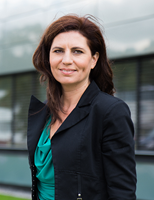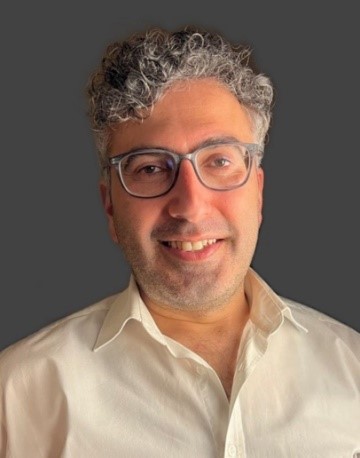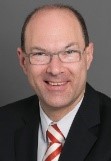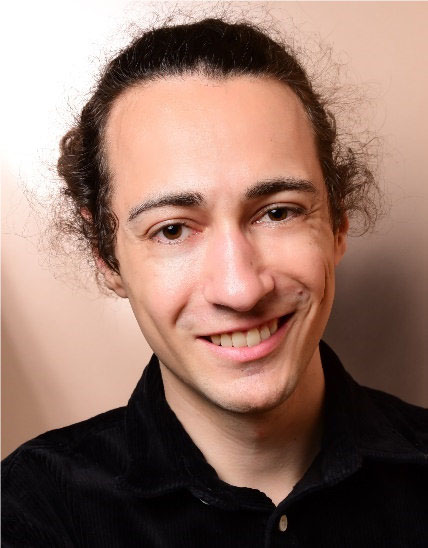- ecolefins@certh.gr
- 6th km Charilaou-Thermi Rd, Thessaloniki, Greece
JULICH
Forschungszentrum Jülich GmbH, Institute of Energy and Climate Research IEK-1: Materials Synthesis and Processing (FZJ) – Partner
Forschungszentrum Jülich founded 1956 is one of the largest interdisciplinary research centers in Europe, member of the Helmholtz Association of German Research Centers. The center spreads on the main campus of ca. 2,2 km² area and on parts of the new Brainergy park and it has nearly 7500 employees (2022), including almost 1000 visiting researchers from 65 countries and more than 500 PhD students. FZJ cooperates with about 200 scientific and industrial partners from Germany and abroad. FZJ´s profile addresses energy and climate research technologies, information technologies and neuroscience by providing comprehensive solutions to grand challenges. The existing unique infrastructure and unrivalled expertise in physics, materials science, nanotechnology, neuroscience etc., makes the largest German research center – home of the Nobel laureate Prof. Peter Grünberg in physics – one of the leading European research institutions.
Partner in ECOLEFINS project is the Institute of Energy and Climate Research, IEK-1: Materials Synthesis and Processing of Forschungszentrum Jülich GmbH, participating with two teams : “Materials for Proton-Conducting Solid Oxide Cells” of the Solid Oxide Cells department and “Modelling” of the department Multidisciplinary activities.
Team “Materials for Proton-Conducting Solid Oxide Cells” focusses on the development of planar electrolysis and fuel cell technology for intermediate temperature operation (T≤600°C) based on proton-conducing ceramics. In the project, the team will be involved in the development and characterization of materials and components for co-electrolysis cells, scalable and cost-efficient fabrication of planar cells of various required sizes, including lab-scale size for initial tests and generation of optimization loops to large areas for stack integration and operation under realistic conditions to proof of the ECOLEFINS concept.
Team “Modelling” will apply electrostatic analysis, density functional theory, thermodynamics, kinetics, and ab initio molecular dynamics to gain insight into the atomistic and electronic structure as well as proton and oxygen transport in electrolyte materials.
Along with these technical tasks, the two teams will be involved in dissemination, communication, and exploitation outreach activities.

Dr.-Ing. (chem.) Mariya E. Ivanova
Chemical Engineer
Dr.-Ing. (chem.) Mariya E. Ivanova (Female) is the team leader of “Materials for Proton-Conducting Solid Oxide Cells” in the the Solid Oxide Cells (SOC) department. Her research focus encompasses development of functional proton-conducting oxide materials and devices such as fuel cells and electrolyzers for electricity and H2 generation, but also for CO2 conversion to added-value chemicals in co-electrolyzers. She is the author or a co-author of 40 peer-reviewed publications (including Nature family journals, J. Mater. Chem. A, Sep. Purif. Technol., J. Membr. Sci., Solid State Ionics, Inorg. Chemistry, ChemSusChem), several book chapters and patents. She has been the PI and coordinator of the national project ProtOMem (BMBF fund), as well as co-PI of several national and international research project (e.g., N-INNER, EFFIPRO, MEM-BRAIN alliance). She is a regular reviewer in relevant scientific journals and research funding agencies. Member of the network “Women in Green Hydrogen”, the American Ceramic Society (ACerS)/Division Engineering Ceramics, the German Hydrogen and Fuel Cell Association (DWV), and the Bulgarian Hydrogen Association (BGH2A).
Prof.-Dr. Payam Kaghazchi
Theoretical Physicist
Prof.-Dr. Payam Kaghazchi (Male) is a theoretical physicist (Ph.D.: Fritz-Haber-Institute/FU Berlin, 2009). He is currently head of the modeling team at the Institute of IEK-1 in the Forschungszentrum Jülich in Germany, and an associate professor in the Department of Inorganic Materials Science at University of Twente in the Netherlands. His research has focused on developing and applying multiscale modeling approaches to simulate and design materials for energy storage and conversion systems. He has published about 120 articles in peer-reviewed scientific journals (including Advanced Energy Materials, Energy & Environmental Science, Materials Today, and Nature Energy).


Hon.-Prof. Dr.-Ing. Norbert H. Menzler
Materials Scientist
Hon.-Prof. Dr.-Ing. Norbert H. Menzler (Male), Materials Scientist, is head of the Solid Oxide Cell department at the Institute of Energy and Climate Research, IEK-1: Materials Synthesis and Processing of Forschungszentrum Jülich GmbH, Germany. Since 2010 he is additionally Lecturer at the Technical University of Aachen (RWTH Aachen) for Materials in Energy Applications and since 2019 he is Honorary Professor at RWTH Aachen. He is co-author of 187 refereed papers, 90 papers in international conference proceedings, 13 book chapters and holds currently 10 patents (Data from Scopus (11/2023): 4243 citations, h-index 35). He is/was leading various national R&D projects, is/was principal investigator of numerous national and international R&D projects. He is frequent reviewer for more than 10 international journals (e.g., J. Power Sources, Electrochimica Acta, Int. J. Hydrogen Energy and others). He is a member of the German Ceramic Society, therein part of the Technical Committee “Processing Technology” and a member of the Electrochemical Society. His R&D focuses on solid oxide cells (fuel cells and electrolyzers), ceramic processing, degradation effects and post-test analysis of SOCs.
M.Sc. Severin Kuffer
Physicist
M.Sc. Severin Kuffer (Male) studied physics at FAU Erlangen-Nurnberg. During his master thesis he investigated the vibrational properties of the 2D materials 1T’ and 2H-MoTe2. He will join the material simulation group of Payam Kaghazchi and will work on his PhD thesis co-supervised by M. E. Ivanova as part of the ECOLEFINS project team.

